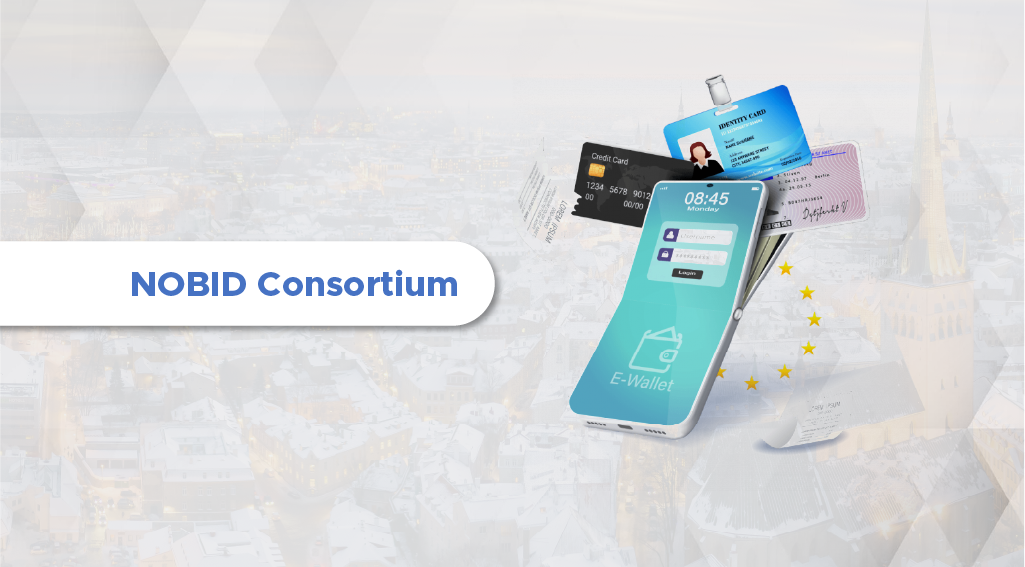NOBID consortium chosen for the payment component of the European digital identity wallet

NOBID, un consortium multinational d'experts en identité numérique, initialement d'origine nordique, a été sélectionné pour mettre en œuvre un projet pilote de paiement transfrontalier au sein de l'EU Digital Wallet de la Commission européenne. L'intégration du paiement dans l'EUDIW semble être une priorité des autorités européennes, dans la même recherche de souveraineté que le projet EPI.
FACTS
-
The Nordic and Baltic eID project will be launched under the auspices of the Nordic Council of Ministers. Created last September, it brings together four Nordic and Baltic countries (Iceland, Norway, Denmark and Lithuania), as well as Italy and Germany. NOBID's objective is to develop a pan-European payment interface that can be integrated into the European wallet project.
-
The EU Digital Identity Wallet is a secure application that allows citizens across the continent to easily verify their identity, access public and private services and store sensitive digital documents in one place.
-
The NOBID Consortium's proposal today focuses on the implementation of an interface that builds on the existing payment infrastructure to enable many use cases around payment within the wallet: instant transfers, account-to-account transfers, acceptance and payment transactions in shops and online.
-
Technology partners of the consortium: Thales, iProov, Signicat, RB, Auðkenni, IPZS, Poste Italiane, Intesi Group, InfoCert, FBK and the Latvian National Radio and Television Centre.
-
Banking and financial partners: DSGV in Germany, DNB and BankID in Norway, Nets in Denmark, Intesa Sanpaolo, PagoPA and ABILab in Italy and Greiðsluveitan in Iceland.
-
Merchants testing the payment solution: Elkjøp in Norway and REWE Group in Germany.
CHALLENGES
-
Combining payment and digital identity functionalities to increase the impact of the European wallet. Since the launch of this project, the European authorities have been very proactive in pushing forward the implementation of EUDIW, which, according to the initial schedule, should be operational by 2024. Demonstrations are already available and show the multiple use cases of this pan-European mobile application, designed natively to respect the data of its bearers, according to the standards being defined in eIDAS 2. The addition of payment further enhances the promise of the wallet.
-
Uncertainties about the payment infrastructure. This project is strongly reminiscent of the EPI project, to which the consortium refers in its communication. In order to ensure interoperability and numerous use cases, the instant transfer will be supported by this pilot, in the same way as the card. However, NOBID wishes to rely on existing infrastructures and the absence of a successful pan-European payment solution could slow down implementation.
MARKET PERSPECTIVE
-
After abandoning the card component in March 2022, the pan-European payment project EPI is giving itself another chance by focusing on SCTinst. The pan-European initiative competing with Visa and Mastercard is entering a new phase and is now investing in instant transfers.
-
The number of instant transfers in France has doubled in one year to 5.6% of transfers. But this is still below the European average of over 12%.
-
The European Commission is also highlighting the draft regulation presented at the end of October, which aims to oblige all banks in the European Union to offer an instant payment in euros at no extra cost compared to the traditional bank transfer, in order to increase its use.
-
Nevertheless, the EUDIW project appears to be a parallel initiative, with the advantage of taking into account the uses linked to digital identity, which meets a crucial need for Europe, particularly in terms of sovereignty.
-
